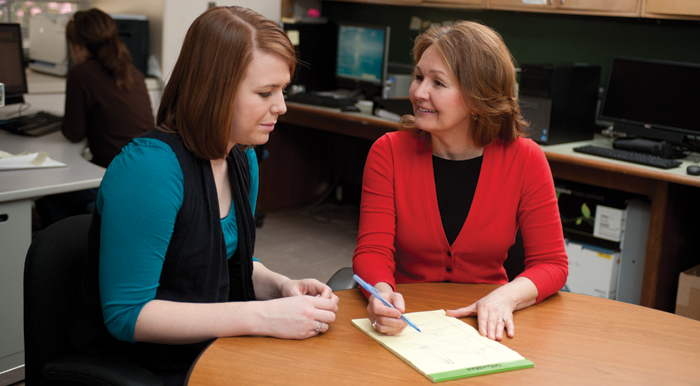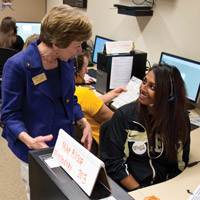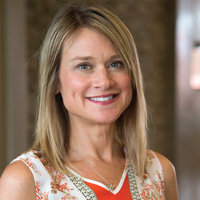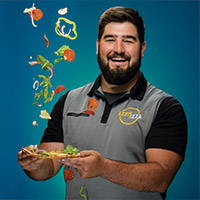
Christine Weber-Fox, a well-known scientist for her work in understanding how the brain processes language and speech, has now been honored for her teaching with the College of Health and Human Sciences Award for Outstanding Undergraduate Education. Her students praise her for relating these experiences as a researcher, and speech-language pathologist, to the classroom.
Weber-Fox's career in speech-language pathology started as a senior in high school when she took a guess on which communication area to study.
"At the time, I didn't know the major of speech-language pathology existed," says Weber-Fox, professor of speech, language, and hearing sciences. "I was looking at a possible list of majors and I thought that sounded interesting. So, I signed up for it and ended up loving the field and making it my career."
By the time students step into Weber-Fox's classroom, they are committed to their major of speech, language, and hearing sciences. The 60 students she sees each week for Speech Language Disorders in Health Care Settings are already motivated to learn and excel in the classroom. She continues to inspire that passion, and as one student noted on an anonymous course evaluation, "She has an effective teaching style that keeps my interest and actually urges me to learn more."
Recent graduate Erin Coffey, who was an honors student her junior year in the speech language disorder class, says, "She is a well-known professor in our field, which can be intimidating for students, but she comes across as very down-toearth and it's obvious she wants us to succeed."
Knowing that many of these students' experiences with speech problems in dementia, Parkinson's disease or traumatic brain injury patients are limited, Weber-Fox invites guest speakers to class. Throughout the semester, these patients share their personal stories about the difficulties, quirks, challenges and even funny moments about living with a serious communication disorder.
"My students see that these people, and their loved ones, are inspiring," Weber-Fox says. "Whether it is a speech or language problem due to a stroke, dementia, trauma or disease, these individuals and their families are facing immense challenges in their daily lives. The visitors broaden the students' perspectives, and show them that despite their disorders they can work to achieve life goals. It really brings home what the focus of the students' careers will be about, whether they go on to do clinical work and treat patients or pursue a career in research."
One classroom visitor, a young woman who had been in a car accident, inspired Coffey to focus on speech and cognitive issues for people with traumatic brain injury. The speech challenges for traumatic brain injury patients can vary, but she struggled with slow and labored speech that made her sound different from most young adults.
"She stuck with me," says Coffey, who began her graduate work at Purdue this fall. "She talked about what it is like to live with the injury and what her life like was before and how it has changed."
"It is a pleasure to teach these students because we share a fascination for human communication and a desire to help people with speech and language disorders," Weber-Fox says. "It's important for teachers to remember what it is was like to be a student, and that students are there too because of their passion and interests. If educators can build on the students' curiosity and excitement, the students are going to invest more of themselves in the class. That inspires me."











